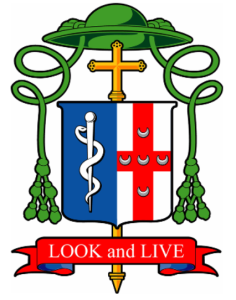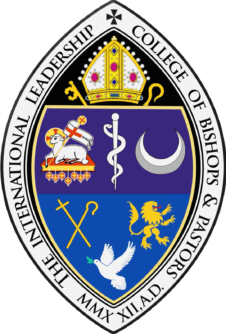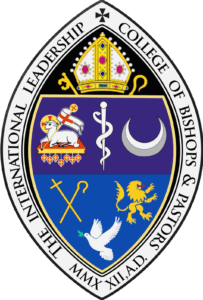The Board Of Holy Orders

The Board of Holy Orders is the International Leadership College Certification Board. The board is responsible for ensuring that all qualifications and protocols are met for individuals who seek licensing, ordination, consecrating and etc. The Board will aid each candidate with academic, local church, and community requirements that are necessary to receive the desired office of service.
The Board will provide oral and written exams that will confirm the qualifications of each candidate. Specific books are required to help enhance the mental and spiritual awareness of each candidate.
The Board of Holy Orders will approve only those candidates who have proven (i.e. oral exam, written exam, etc.) that they are capable of defending the faith. Continuing education is imperative.
The Board of Holy Orders will consist of representatives from each diocese. The regional Bishop or the Chairman of the Board will select one or two representatives (Overseer and/or Elders) that will serve on the Board of Holy Orders. Each representative will also receive detailed information concerning his or her responsibilities as an Examiner for the college.
The diocese representative will:
- Aid in examinations.
- Serve as mediator between the Board and the Diocese. New information and requirements for credentials will be relayed to diocese by the representatives.
- Confirm that all requirements are met before candidate applies for the written exam.
- Work closely with the Overseer and Bishop of their diocese concerning issues that relate to the board.
How to Become a Candidate for the Bishopric
- Complete an application for the bishopric.
- Submit a letter of recommendation from your presiding bishop.
- Proof of Licensing as a minister.
- Proof of ordination as an elder.
- Ministerial Biography
- Academic Degrees
- Supporting letter from your spouse.
- A personal letter stating why you believe you are qualified to be consecrated as a bishop and explain what service you will bring to the government of the college.
- A background check will be conducted by the college.
Academic Requirements for Ordination
The Candidate must complete the minimum number of years of service before matriculating to the next level of ministry. Those candidates who seek ordination must complete each level of their training.
Each Candidate should be involved in continuous certified ministerial education. (I.E. Seminary)
Minister
Aspirant Minister 1 year
Exhorter Minister 1-2 year
Licensed Minister 2-4 years
Ordained Minister 2-4 years (examination required before ordination)
Candidate for Licensed Elder
Licensed Elder 3-6 years
Ordained Elder (examination required before ordination)
Listed below are required Book readings:
- HELP Ministry” by Buddy Bell
- “Covenant Relationship” by Keith Intrator
- “Ministerial Ethics and Etiquette” by Nolan B. Harmon
- “21 Irrefutable Laws of Leadership” by John Maxwell
- The “Bible”
- Through The Eyes of the Protege – Bishop John Wade
- “Mentoring – The Missing Link” by Bernard Jordan
- “Spiritual Protocol” by Bernard Jordan
- “Spiritual Authority” by Watchman Nee
- The Making of a Price: Bishop J. D. Ellis
- At Death’s Door – Bishop John Wade
Local Church and National Church Requirements for Ordination
- Candidate must be committed to assigned duties in their local Church and Pastors are expected to serve under an organization. If there are questions see the Dean.
- Candidate must be obedient, loyal and faithful to the local Pastor and embrace the vision of the Presiding Bishop.
- Candidate must be consistent member of the College.
- Candidate must demonstrate commitment to the college and serve in some capacity when offered.
- Candidate is required to attend at least 2 events a year and one of them must be the National Gathering of the College.
Domestic and Community Requirements for Ordination
- Candidate must have a good report and be sober minded at home, in the community and place of employment.
- Candidate must have at least three months of voluntary time in the areas of HELP ministries. The area of helps may include; nursing homes, hospitals, prisons, hospice, rehabilitation centers, homeless shelters, food banks, counseling, divorce supporters, AIDS counselor.
- Other approved areas may include youth ministry, children’s ministry, usher, sexton, tape ministry, choir, transportation etc.
The Last Year of Apprenticeship
- Candidate is recommended to The Board of Holy Orders by their local Pastor or the Presiding Bishop of their organization.
- Candidate must attend previous Convocation before they can sit for the exam.
Candidate should start the process of ordering cleric attire for Ordination. Local Overseer of Diocese will have detailed knowledge of Protocol.
Registration:
– Request for Registration Application
– Registration Fee $50.00
Testing Procedure and Protocol
Written Exam
- The written exam is a 100 question multiple choice exam.
- The written exam will be administered at the National Congress Gathering.
- The passing score for the written exam is 75%. NO “curve.”
Oral Exam
The Oral Exam is the second part of the exam.
When arriving at the testing site, each candidate should present:
- College photo identification card. Candidates will not be admitted without proper identifications!
- Driver’s license
- Admission Ticket
- Two #2 Pencils
- Each candidate must be in civic attire for both parts of the Exam.
Procedure after Passing the Written and Oral Exam
The results will be forwarded to the listed persons:
- Letter will be sent to the local Pastor and Bishop of the Diocese.
- If the candidate passes both parts of the exam, Ordination will be held during the Local Diocese Meeting.
- Bishop/Overseer of the Diocese will receive the Ordination certificates.

